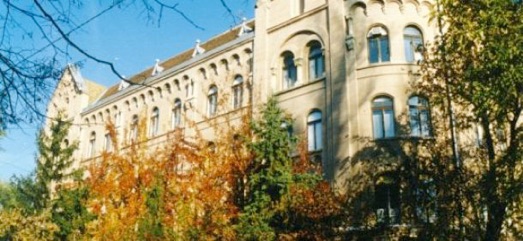UNIVERSITY OF SZEGED
DOCTORAL SCHOOL IN LINGUISTICS

UNIVERSITY OF SZEGED
DOCTORAL SCHOOL IN LINGUISTICS

In 1993, in the very first round of accreditation procedures to structure Hungarian higher education around the European Higher Education Area, the country’s National Accreditation Committee approved four doctoral programmes for the awarding of the PhD degree at what was then the József Attila University (JATE) Faculty of Humanities: Theoretical Linguistics, Comparative and Historical Turkic Studies (Altaic Studies today), Slavic Language History (Historical Slavic Studies today) and the Complex Study of Uralic and Samoyedic Languages (Uralic Linguistics today) under the leadership of four professors (István Kenesei, András Róna-Tas, Imre H. Tóth and Tibor Mikola, respectively). The years that followed saw the accreditation of further PhD programmes: English Applied Linguistics, French Linguistics (now Neo-Latin Linguistics), Hungarian Linguistics, German Linguistics and Russian Linguistics. The programmes in the current Doctoral School of Linguistics (DSL) carry on these traditions under its director, Prof. Enikő Németh T., a corresponding member of the Hungarian Academy of Sciences.
The main strengths of the DSL are its extensive research in historical, theoretical, descriptive, typological and applied linguistics, as well as its decades of practical experience in postgraduate education. Through the integration of Szeged’s higher education institutions in 2000, we were able to incorporate the outstanding linguists at the former Juhász Gyula Teacher Training College as internal members of our school. Today, our onetime students who have obtained their doctorates are among our lecturers and even our programme directors. Further strengths of the DSL include the fact that its programmes have accepted international students since 2015 and that internationally recognised professional workshops have been established alongside its programmes, which directly involve our PhD students in their research work and in domestic and international projects, thus making doctoral training attractive both domestically and internationally. In 1997, the DSL launched the unique National Conference of PhD Students in Linguistics (LingDok), providing an opportunity for Hungarian – and, more recently, international – PhD students in linguistics to present their results and to network.
Numerous dissertations have been written at the DSL, most of which have been published, many of them as winners of national competitions. A significant number of our PhD graduates hold positions at Szeged, at other higher education institutions in Hungary (Eötvös Loránd University (Budapest), University of Pannonia (Veszprém) and Pázmány Péter Catholic University (Budapest)) and at the Hungarian Research Centre for Linguistics in Budapest, and we maintain regular contact with them.
The DSL mission and vision are to maintain a high standard in its nine programmes in historical, descriptive, typological, theoretical and applied linguistics based on the experience and best practices of the past three decades, while building on the school’s strong reputation both domestically and internationally. Its teaching and research activities rise to the challenges of the age and to social expectations, depending on the field, as well as endeavouring to cover innovative research areas. DSL graduates ensure a next generation of scholars both at home and around the world.

Welcome

